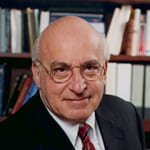Washington University in St. Louis has announced the launch of the Center for Health Economics and Policy (CHEP), to be housed in the Institute for Public Health. The goal of the new center is to improve population health in America by encouraging health policy and economics research and dissemination.

The center will be co-directed by Timothy McBride, PhD, professor at the Brown School and noted health economist; and William A. Peck, MD, director of the Center for Health Policy, the Alan A. and Edith L. Wolff Distinguished Professor of Medicine, former dean of the School of Medicine, executive vice chancellor for medical affairs and president of the Washington University Medical Center.
The establishment of the Center for Health Economics and Policy will help strengthen and sustain Washington University’s commitment to improving the public health of America,” Chancellor Mark S. Wrighton said. “Under the leadership of Tim McBride and Bill Peck, I have no doubt that this new center will make an impact quickly. “We are thrilled that the Center for Health Economics and Policy joins the other centers in the Institute for Public Health,” said William G. Powderly, MD, director of the Institute for Public Health, the J. William Campbell Professor of Medicine and co-director of the division of infectious diseases at Washington University in St. Louis School of Medicine.
“The Institute for Public Health brings together investigators to tackle, in transdisciplinary approaches, major community health issues and to eliminate health disparities,” Powderly said. “A focus on health economics and health policy will be critical to develop long-lasting solutions to these major challenges. I look forward to working closely with Tim McBride and Bill Peck on these problems.”

McBride feels that in the 21st century, the United States faces historic challenges in the areas of health economics and policy.
“The nation seeks to expand access to high-quality medical care, while containing rising medical care costs,” McBride said. “In our region, the US, and across the globe, health systems also face the issues of health disparities, financing medical care for a rapidly-rising aging population and provider shortages.
“Against that backdrop, an increased understanding of health economics and policy is essential to solving the nation’s goals for access, quality and affordability,” McBride said.
“Washington University is already a national and global leader in the areas of health policy and economics with impressive faculty scholarship and innovative research capacity focused through the Institute for Public Health and high-quality teaching programs,” Peck said.
“The vision for the Center for Health Economics and Policy will be to establish a university-wide asset, taking full advantage of the many existing interdisciplinary collaborations to create new work in this area,” Peck said. “The center will promote collaboration with our great medical school faculty. In addition, many of our gifted medical students have a strong interest in learning about health policy, and some have engaged in relevant research activities.”
The center’s mission will be to encourage the development of high-quality, evidence-based research that focuses on improving the health of people in the nation and region, and disseminating this work to policy makers and other stakeholders.
To achieve this mission, CHEP will:
- Develop programs to increase the capacity of faculty scholars to produce the highest quality research in health economics and policy.
- Train new and existing scholars and students in the use of health economics and policy methods to enhance their ability to produce high quality research projects.
- Provide opportunities that encourage the dissemination of timely research findings to policymakers and other community leaders, including production of policy briefs, webinars, infographics and conferences.
“These strategies, implemented over the next few years, will enable Washington University to build on its current strengths to a sustained leadership position in the fields of health economics and policy,” McBride said.
“These efforts will build a foundation for scholarly research and teaching, which will attract the best and brightest students and faculty from the field, helping to disseminate high-quality work to national and regional leaders to solve public health problems.”